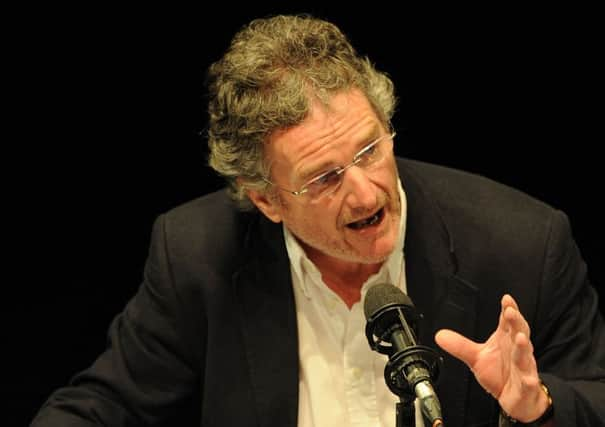‘Syria has better human rights than Scotland’


Professor Alan Miller, as chairman of the Scottish Human Rights Commission, told a conference in Glasgow that new rights concerning housing, health, standard of living, women, children and people with disabilities, must be written into law in order for Scotland to catch up.
He has launched a national action plan aimed at making sure rights that exist in legislation have a meaningful benefit in people’s daily lives.
Advertisement
Hide AdAdvertisement
Hide AdThe rights afforded to Scots through the Human Rights Act and the Scotland Act fall short of the range available internationally, and Prof Miller said that, regardless of how Scotland votes in the referendum, that must be addressed.
The Scottish Government has committed to enshrining the European Convention on Human Rights in its constitution if the country backs independence. In the event of a No vote, the UK government could amend the Human Rights Act, or failing that, Holyrood could introduce its own legislation.
Prof Miller said: “The time has come for Scotland to move to that next stage and join 60 other countries that have given constitutional status to all of those rights to allow people to live lives of dignity.”
He stressed it is not just a matter of writing new laws, but also of implementation and making them relevant. “Innovation forums” will meet later in the year to discuss how to do that.
Although Scotland has an image as a country that embraces human rights, experts say the reality is quite different.
Alastair Pringle, director for Scotland at the Equality and Human Rights Commission, told the conference: “Scotland does still face big challenges. Too many of us have been constrained by gender, disability, race, sexual orientation, religious belief or even the fact that you’re pregnant in the workplace.
“Scotland’s social attitudes survey showed that there is still a gap between Scotland’s self-perception as a nation that is open and fair, and the reality of some hardening attitudes towards groups. The financial crisis and its aftermath have led to some increasingly hostile rhetoric about spongers and cheats.”
A Scottish Government spokeswoman said: “We are committed to creating a modern, inclusive Scotland which protects, respects and realises internationally recognised human rights.”
Advertisement
Hide AdAdvertisement
Hide AdWritten in law: countries with ESC (economic, social and cultural) rights include:
Argentina
Bolivia
Brazil
Colombia
Ethiopia
France
India
Indonesia
Ireland
Japan
Mexico
Mongolia
Morocco
Mozambique
Nigeria
Nicaragua
Russia
Senegal
South Africa
Syria
Thailand
Venezuela